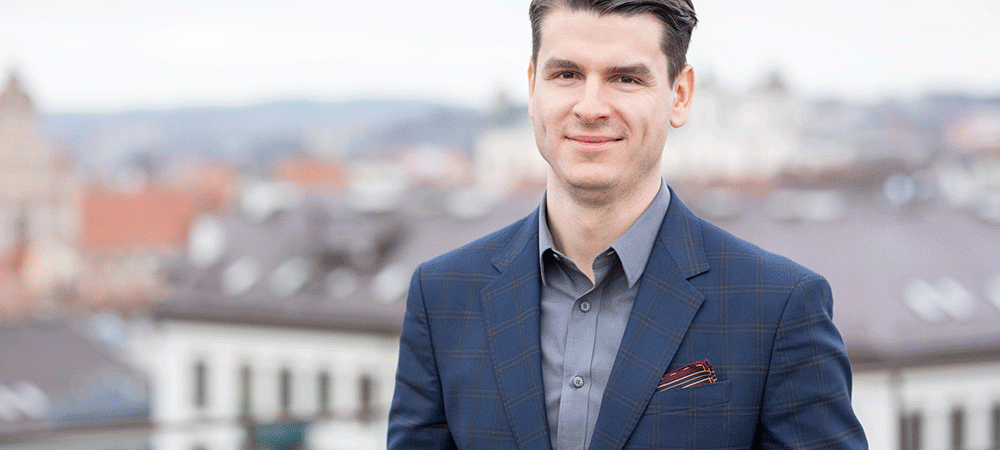We caught up with Daumantas Dvilinskas, Co-founder and CEO of TransferGo, to find out what makes him tick…
What would you describe as your most memorable achievement?
I am proud to have built my team here at TransferGo. We have a great group of talented and driven people, who are passionate about delivering the best possible experience for our customers. When we look at the reviews and customer feedback it makes that investment worthwhile.
What first made you think of a career in technology?
Tech is eating the world, as they say, so it always seemed like a logical place to be. Having said that, I’m not one of those tech enthusiasts who is passionate about all of the latest innovations and then tries to find customer use cases for them. I follow the opposite methodology I suppose. Our business came about after my co-founders and I established a more traditional import/export business, which meant we had to make regular international payments to our suppliers. Back then, banks were our only option for cross border payments, and they were charging up to 15 times more for seven-day settlements than we are today – it was a nightmare.
We realised many others would be facing the same problem, so set about finding an answer for those who needed it most – migrants working abroad and sending money home – and the technology followed.
What style of management philosophy do you employ with your current position?
My management philosophy has evolved a lot over the years. Finding the best people and letting them tell me what to do is where I would like to be. It is a work in progress and sometimes it operates better than others! I’m the vision keeper here, but the ‘how’ belongs to my team as much as possible.
What do you think will emerge as the technology trend of 2020 and why?
COVID-19 is clearly taking the centre-stage, so it’s quite likely 2020 will be its year. But, as with any crisis, I’m sure it will generate some amazing innovations that will form part of its legacy.
People used to say that we need to pollute the earth as travelling is essential for business. People used to say that it’s very difficult to change our lifestyles quickly. People used to say office work is essential. Now, many of these assumptions are being thrown out of the window. It’s taken five weeks to adapt to a new reality that if it wasn’t forced, would have taken well over five years to achieve. True, people still need people to function, but I hope we never come back to the status quo as it was before COVID-19. We should learn and evolve into a better species that cares for the environment much more. I’m sure technology will help make that a reality.
What are the region-specific challenges when implementing new technologies in Europe?
It used to be that Western Europe had significant advantages over Eastern Europe. This is clearly no longer the case. We see a balanced set of advantages and disadvantages in both. When it comes to innovation adoption, apart from the UK, Eastern Europe has leaped the rest. And I believe it will continue on this path. Experience and talent are still a very important asset in Western Europe but it’s no longer that black and white. My prediction is for Eastern Europe and the Baltic states to start leading innovation in Europe.
How do you deal with stress and unwind outside of the office?
Being social is important to me, as is having hobbies. The COVID-19 reality has actually helped me rekindle some of my old hobbies, such as music and gaming, that I had forgotten over the years.
If you could go back and change one career decision, what would it be?
I don’t think there is anything significant, yet. There are always things that could have been done better in hindsight, but in general I would say I am pretty content with my choices so far.
What changes to your job role have you seen in the last year and how do you see these developing in the next 12 months?
The biggest change has been the focus on strategy over tactics. I now have to be one or two steps ahead of where we are today. Spending more time on thinking rather than doing. I think this will continue to be a larger part of my day-to-day as TransferGo continues to scale quickly.
What advice would you offer somebody aspiring to obtain a C-level position in your industry?
Be ready for the long-haul as it is certainly a marathon. Quick flips or overnight successes are very rare. Be ready to invest a significant amount of your life. I think it’s a very meaningful place to make this investment, though, as it can change people’s lives. Nonetheless, it takes time to innovate here.
What do you currently identify as the major areas of investment in your industry? Automation, Machine Learning and AI in general should further improve user experience at scale. Compliance and RegTech as well. I can see these being the main innovation-enablers, especially in the fintech and remittance space



